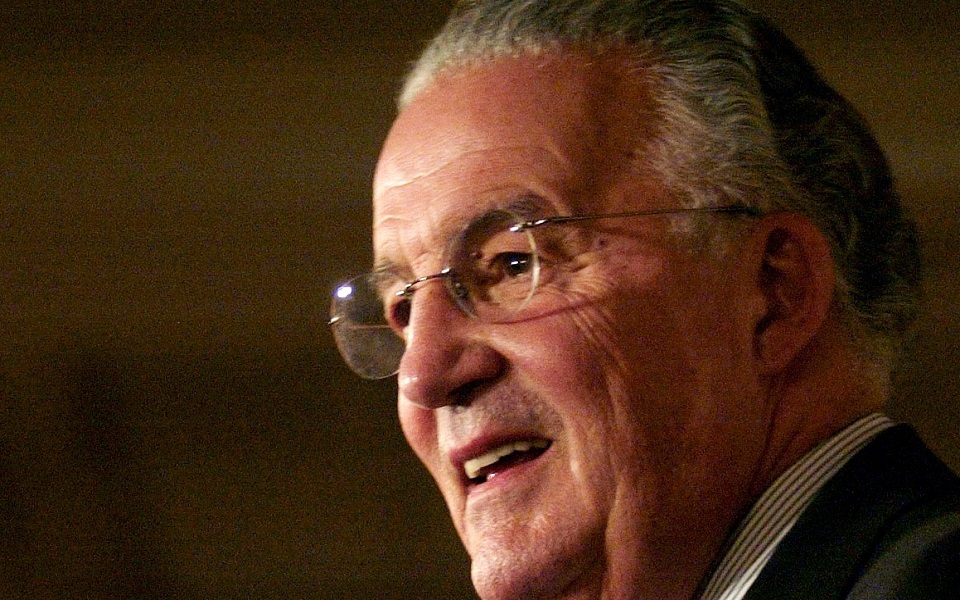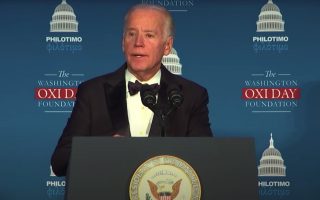Paul Sarbanes: A committed and adept champion of Greece

I had the honor and good fortune to work closely with Paul Sarbanes, the late Greek-American US congressman for the state of Maryland. Our acquaintance began soon after I assumed the post of ambassador in Washington and continued with weekly meetings throughout my four-year tenure.
Aware of Sarbanes’ activities and importance in Congress even before taking up the post, I sought to meet him right after I presented my credentials to the US secretary of state, formally allowing me to approach American officials. As soon as I met him, I understood the merit of his reputation for communicating and generating support for Greek positions on many complex issues in which America was, in one way or another, involved.
He was without doubt a true patriot as a politician, a man of strong political and moral standing, serious and moderate, with the consequent power and influence among his colleagues in Congress. Proof of this was the many occasions on which I approached members of Congress to seek their support for one or another of our demands, only to be told before I could even begin developing my argument that they had already been briefed by Sarbanes, whom they trusted implicitly on all matters of Greek interest.
I was – and still am – absolutely convinced that Sarbanes was, for many decades, the soul and backbone of the so-called Greek-American lobby in the American legislature, just as the late Archbishop Iakovos was a champion of and apologist for Greek positions in the circles of successive American administrations – though the latter was unable to escape the selfish, opportunistic and myopic pettiness of the political class (among others) in Greece.
I believe that the unsung success of Sarbanes’ efforts – especially in the area of bilateral Greek-Turkish relations but also with regard to the Cyprus issue – lay in his ability to convince the American side that supporting Greek positions would not only serve Greek interests but, mainly, American ones. It was – I believe – a very convincing position. There is little doubt that despite their seemingly two-dimensional aspect, Greek-American and Greek-Turkish relations are actually triangular and are affected by every relevant American decision. This, after all, is the line that appears to have been adopted by the newer voices in Congress who are seeking – precisely in order to safeguard broader American interests – a reserved and critical, if not punitive, American stance toward Turkey’s various actions.
Another side of Sarbanes’ personality that deserves attention – and which he was loath to make public – is the dignity with which he dealt with various unsubstantiated attacks by certain diaspora elements that accused him of betraying and bartering the nation because he opposed efforts to push the idea of a violent American ouster of Turkish troops from the occupied north of Cyprus, something that is obviously impossible.
Sarbanes was equally dignified on those rare occasions when he spoke to colleagues about the difficulties presented to his work by the occasional anti-American and inflammatory outbursts in Athens, which he always sought to justify as a reaction to a prevalent sentiment in Greek public opinion that the country did not have the support it expected and deserved from the United States.
In every other respect, Sarbanes’ relations with Athens – and with successive prime ministers who always heeded his opinions, which he supplied generously and selflessly – were smooth, at least as far as I was able to personally ascertain, and he never expected any special treatment, recognition or honors in return. It is because of this that I felt such satisfaction when I heard that Sarbanes was awarded the Order of the Phoenix by Greek President Karolos Papoulias in 2008. Incidentally, I had recommended to Papoulias, when he was foreign minister, that some kind of distinction be given to this pre-eminent champion of Greece in the United States, without whose voice the Greek lobby would have little to show.
Christos Zacharakis is a retired diplomat who served as ambassador of Greece to the United States from 1989 to 1993.





